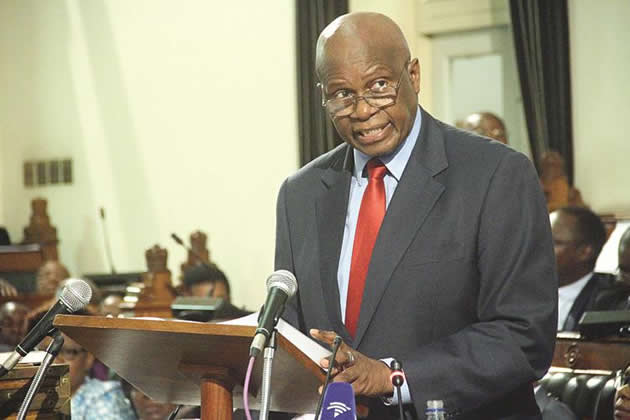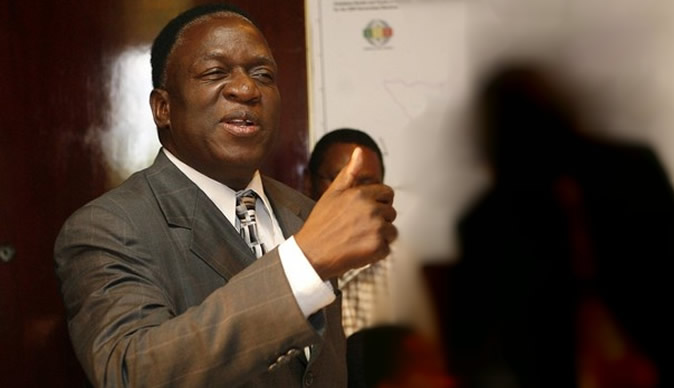4.8% economic growth in 2017

Prosper Ndlovu, Business Editor
ZIMBAWE’S economy is projected to grow by average 4.8 percent in 2017 from the revised 1.2 percent in 2016 driven mainly by the anticipated improvement in agriculture production, manufacturing and construction sectors.
Finance Minister Patrick Chinamasa said this in Bulawayo yesterday while addressing legislators who are attending the ongoing 2017 pre-budget seminar.
The Government is already planning massive food production in the 2016-17 season under the specialised command agriculture scheme where it has already mobilised $500 million. Several other farming support schemes running into millions of dollars are also being rolled out with a bias towards boosting communal producers, cotton, soya bean and livestock.
The meteorological and climate change experts in the Sadc region have already predicted normal to above normal rains, supporting a favourable agricultural season.
Regarding the manufacturing industry, Minister Chinamasa said the implementation of value addition strategies in cotton to clothing, beef to leather, agribusiness, food and beverages was critical. He said this was going to be buttressed by an improved investment environment, benefiting from the ongoing Ease of Doing Business reforms.
He said the recently embraced Special Economic Zones legislation was also expected to have a huge bearing in enhancing the investment climate in the country going forward.
“The Special Economic Zones Bill has been signed into law by His Excellency, the President. As part of the implementation of the Special Economic Zones concept, Treasury will be outlining a package of tax incentives through the 2017 national budget meant to stimulate the economy,” said Chinamasa.
Guided by the above highlighted assumptions, the minister hoped for an improved 2017 macro-economic framework, which is envisaged to yield a better economy.
In his projections, the economy would grow by 4.8 percent in 2017 from the subdued 2.7 percent growth projection for this year. The minister said revenues of about $4 billion, which represent 26 percent of GDP, are to be generated.
This year’s budget has not performed well so far largely due to reduced agriculture production in the last season as a result of El-Nino induced drought, falling commodity prices and firming of the greenback against regional currencies.
Minister Chinamasa, however, expressed concern over the continued negative trade. He reported that exports for the period January to September stood at $1.766 billion against imports of $3.778 billion, giving a trade deficit of $2.013 billion.
“To reduce this trade deficit, the Government will continue to implement import substitution and restrictions on the importation of non-essentials so as to preserve the stock of our foreign currency in the country. Such measures include the Statutory Instrument 64 of 2016,” he said.
As such, the minister said, the 2017 budget will be geared to address the current economic challenges the economy is facing with focus on stimulating transformative economic development by enhancing the supply side in the productive sectors.
“Accordingly, a number of tax and other incentives will be part of the package in the 2017 budget to achieve this objective. The 2017 national budget will continue to be guided by Zim-Asset, the 10-Point Plan, the Interim Poverty Reduction Strategy Paper launched on 26 September 2016 and other relevant sectoral policies,” he added.












Comments